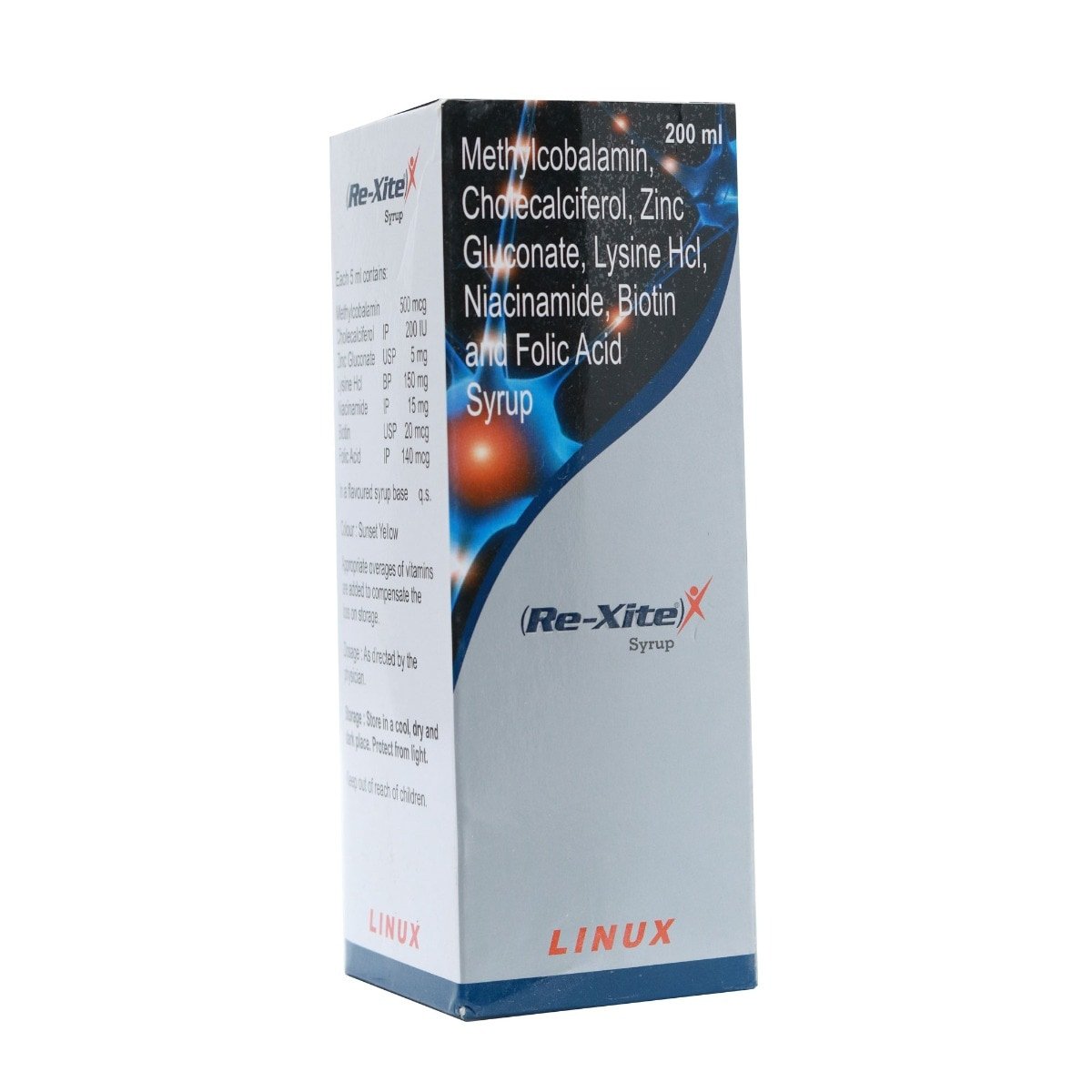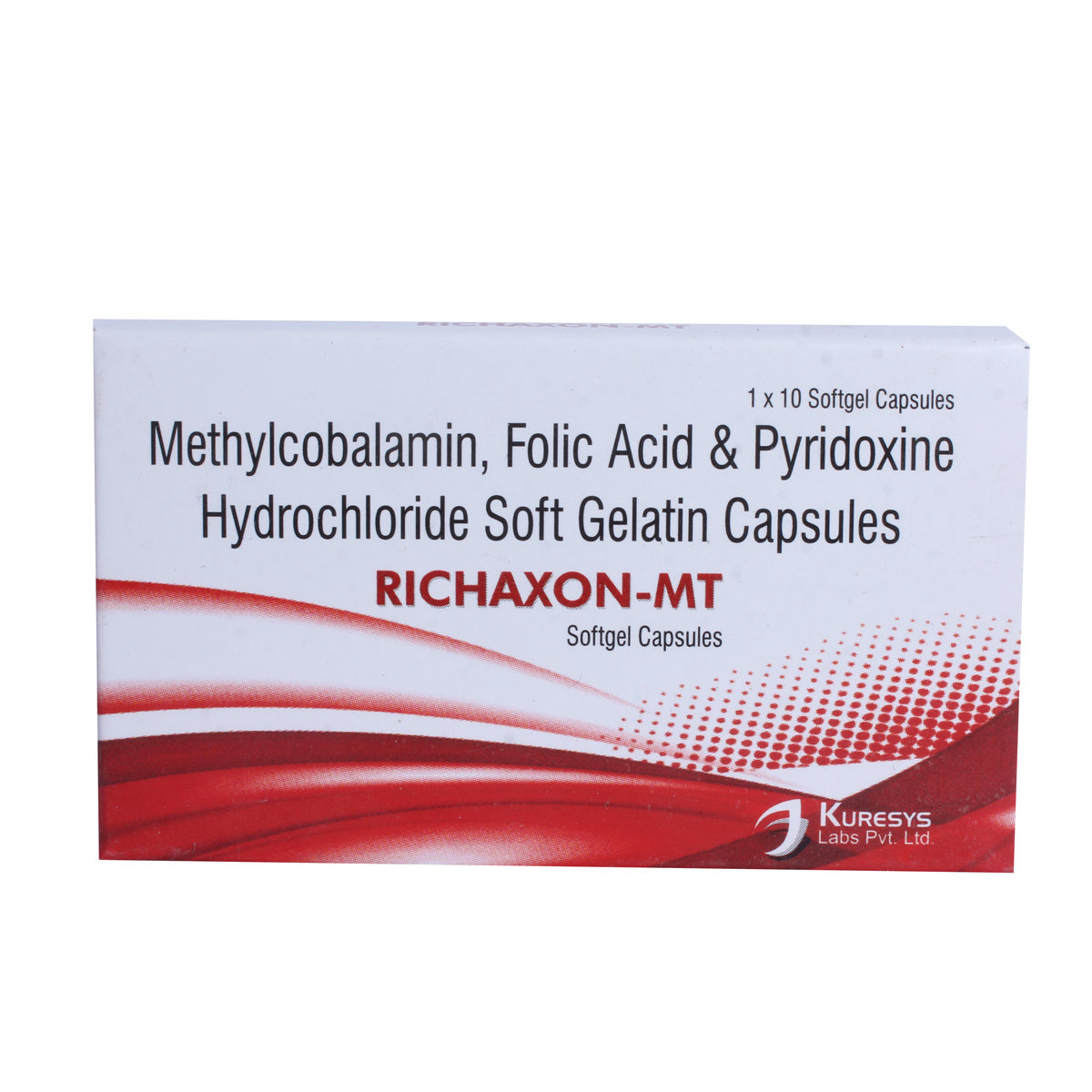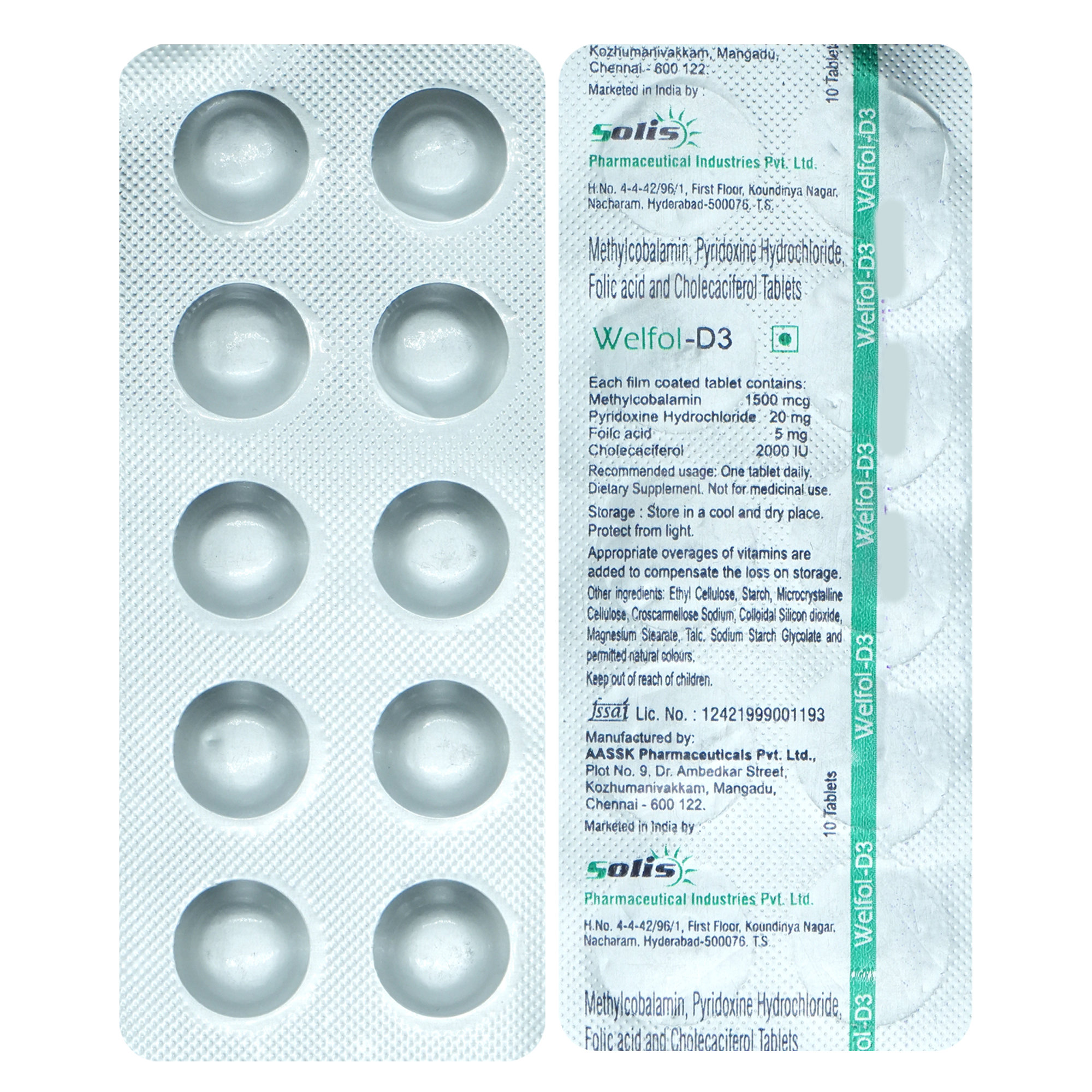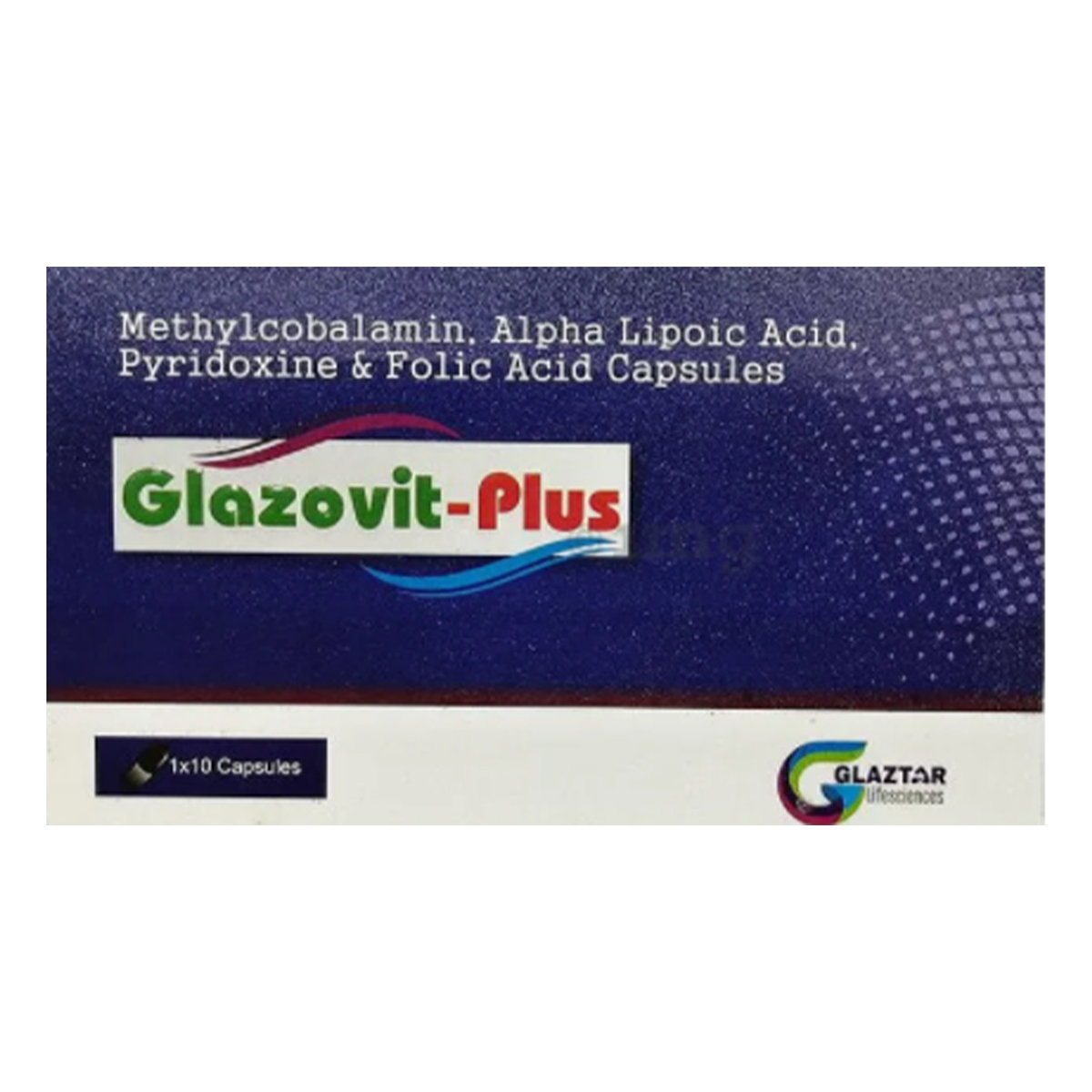Folic Acid+pyridoxine
About Folic Acid+pyridoxine
Folic Acid+pyridoxine belongs to the class of 'multivitamins' primarily used to treat nutritional deficiencies due to various complications or long-term diseases. It is used to treat and prevent vitamin B6 deficiency, anaemia (lack of red blood cells), peripheral neuropathy (nerve disorder), seizures (fits), hereditary disorders like hyperoxaluria (excess oxalate levels in urine), and homocystinuria (accumulation of an amino acid called homocysteine in urine and blood).
Folic Acid+pyridoxine contains Folic acid (vitamin B9) and Pyridoxine (vitamin B6). Folic acid helps in providing essential nutrients to the body. Pyridoxine (Vitamin B6) treats low levels of Vitamin B6, anaemia (low haemoglobin), and nerve damage (neuritis) caused by tuberculosis (TB), used for treating drugs like isoniazid. It works by increasing the level of vitamin B6 in the body, thereby treating nausea and vomiting.
Take Folic Acid+pyridoxine as recommended by your doctor. You may experience dryness in the mouth, drowsiness, constipation, sleepiness, and loss of appetite. Most of these side effects do not require medical attention and will resolve gradually over time. However, you are advised to talk to your doctor if you experience these side effects persistently.
Let your doctor know if you are using any other medicines, including herbal products before starting Folic Acid+pyridoxine. If you are known to be allergic to Folic Acid+pyridoxine or its inactive components, please inform your doctor. B Vitamins like Pyridoxine are absorbed readily through oral administration. Please tell your doctor if you have malabsorption syndrome (difficulty absorbing nutrition from food) so that the dosage form may be changed to intravenous administration for better absorption of Folic Acid+pyridoxine. Inform your doctor before taking Folic Acid+pyridoxine if you have cancer or tumour. If you are a pregnant or breastfeeding mother, please consult your doctor before taking Folic Acid+pyridoxine.
Uses of Folic Acid+pyridoxine
Medicinal Benefits
Folic Acid+pyridoxine is used to treat nutritional deficiencies and contains Folic acid and Pyridoxine. Folic acid helps in providing essential nutrients to the body. It is used to prevent anaemia (lack of red blood cells) in adults, children and pregnancy. Pyridoxine (vitamin B6) is a water-soluble vitamin that treats and prevents vitamin B6 deficiency, anaemia (lack of red blood cells), peripheral neuropathy (nerve disorder), seizures (fits), hereditary disorders like hyperoxaluria (excess oxalate levels in urine), and homocystinuria (accumulation of an amino acid called homocysteine in urine and blood). It also treats idiopathic sideroblastic anaemia (low haemoglobin), and nerve damage (peripheral neuritis) caused by tuberculosis (TB) treating drugs like isoniazid.
Directions for Use
Storage
Side Effects of Folic Acid+pyridoxine
- Dryness in mouth
- Drowsiness
- Constipation
- Sleepiness
- Loss of appetite
Drug Warnings
Let your doctor know if you are using any other drugs, and herbal products before starting Folic Acid+pyridoxine. Inform your doctor if you are allergic to Folic Acid+pyridoxine or its inactive components. Please inform your doctor if you have malabsorption syndrome (difficulty absorbing nutrition from food). If you suffer from pernicious anaemia (a disorder preventing the absorption of vitamin B12) or could be suffering from a lack of vitamin B12. If you have a tumour. Care needs to be taken in patients with some tumours. Folic Acid+pyridoxine is excreted into the breast milk. Pregnant or breastfeeding women should consult their doctor before taking Folic Acid+pyridoxine. Avoid consuming alcohol along with Folic Acid+pyridoxine as it could lead to increased sleepiness and dizziness.
Drug Interactions
Drug-Drug Interactions: Folic Acid+pyridoxine may interact with antitumor medicines (fluorouracil), fits medicines (phenytoin, phenobarbital), antibiotics (trimethoprim, sulphonamides, chloramphenicol), TB medicines (isoniazid), and medicines treating Parkinson's disease (levodopa).
Drug-Food Interactions: Avoid alcohol consumption while taking Folic Acid+pyridoxine as it could lead to increased dizziness and sleepiness.
Drug-Disease Interactions: Folic Acid+pyridoxine may cause interactions with disease conditions such as malabsorption and anemia.
Drug-Drug Interactions Checker List:
Safety Advice

Alcohol
unsafeAvoid consumption of alcohol while taking Folic Acid+pyridoxine as it may increase dizziness and sleepiness.

Pregnancy
cautionLet your doctor know if you are pregnant or planning to conceive before taking Folic Acid+pyridoxine.

Breast Feeding
unsafeAvoid taking Folic Acid+pyridoxine if you are breastfeeding as it may pass into breastmilk and cause harm the baby.

Driving
not applicableNo interaction found/established.

Liver
cautionPlease consult your doctor before taking Folic Acid+pyridoxine if you have a liver impairment or any concerns regarding this.

Kidney
cautionPlease consult your doctor before taking Folic Acid+pyridoxine if you have kidney impairment or any concerns regarding this.

Children
unsafeFolic Acid+pyridoxine contains pyridoxine which is not recommended for children.
Habit Forming
Diet & Lifestyle Advise
- Try Vitamin B complex food sources like milk, cheese, eggs, liver and kidney, chicken, red meat, tuna, mackerel, and salmon, shellfish, oysters, clams, dark green vegetables, such as spinach and kale, beets, avocados, and potatoes, whole grains, cereals, kidney beans, black beans and chickpea.
- Include fruits like citrus, banana, and watermelon in your diet.
- Avoid smoking and alcohol consumption.
- Exercise regularly, and maintain a healthy lifestyle. Avoid excess fatty foods.
Special Advise
- Clinical monitoring of Vitamin B levels through blood examinations is recommended.
- Let your doctor and the laboratory staff know if you are using Folic Acid+pyridoxine since Pyridoxine may interfere with laboratory tests like urine tests for urobilinogen.
- Long-term administration of large doses of pyridoxine is associated with the development of severe peripheral neuritis (Weakness, numbness, and pain from nerve damage, usually in the hands and feet).
- Folate present in Folic Acid+pyridoxine should not be routinely used in patients receiving coronary stents.
Patients Concern
Disease/Condition Glossary
Nutritional deficiency: A nutritional deficiency happens when the body does not absorb or get from food the required amount of a nutrient. Deficiencies may cause a variety of health complications. These can include digestion problems, small or defective bone growth, skin disorders, and even dementia (loss of memory).
Vitamin B6 deficiency: When your body does not have adequate levels of a water-soluble vitamin called Pyridoxine or Vitamin B6, this disease is developed. Vitamin B6 deficiency symptoms include fatigue, skin rashes, cracked and sore lips, weak immune system, tiredness, low energy levels, tingling in hands and feet, and fits.
FAQs
Vitamin B6 deficiency occurs when your body lacks adequate Pyridoxine levels. You can overcome this deficiency by including food sources rich in Pyridoxine like milk, eggs, beef, pork, chicken or turkey, fish, peanuts, soya beans, wheat germ, oats, and bananas. If your Vitamin B6 levels are still low, your doctor may advise supplements.
Dry mouth could be a side-effect of Folic Acid+pyridoxine. Limiting caffeine intake, avoiding smoking and mouthwashes containing alcohol, drinking water regularly, and chewing sugar-free gum/candy might stimulate saliva and prevent drying of the mouth.
Pyridoxine in Folic Acid+pyridoxine may interfere with laboratory tests like urine test for urobilinogen. Please make sure your doctor and the laboratory staff know that you take Folic Acid+pyridoxine before undergoing any blood and urine examinations.
Do not discontinue Folic Acid+pyridoxine without consulting your doctor as it might lead to recurring symptoms. To treat your condition effectually continue taking Folic Acid+pyridoxine for as long as recommended. Do not be reluctant to speak with your doctor if you feel any difficulty while taking Folic Acid+pyridoxine.
If you forget to take a dose, take another as soon as you remember. If it is almost time for your next dose, then do not take the missed dose at all. Do not take a double dose to make up for a forgotten tablet.









